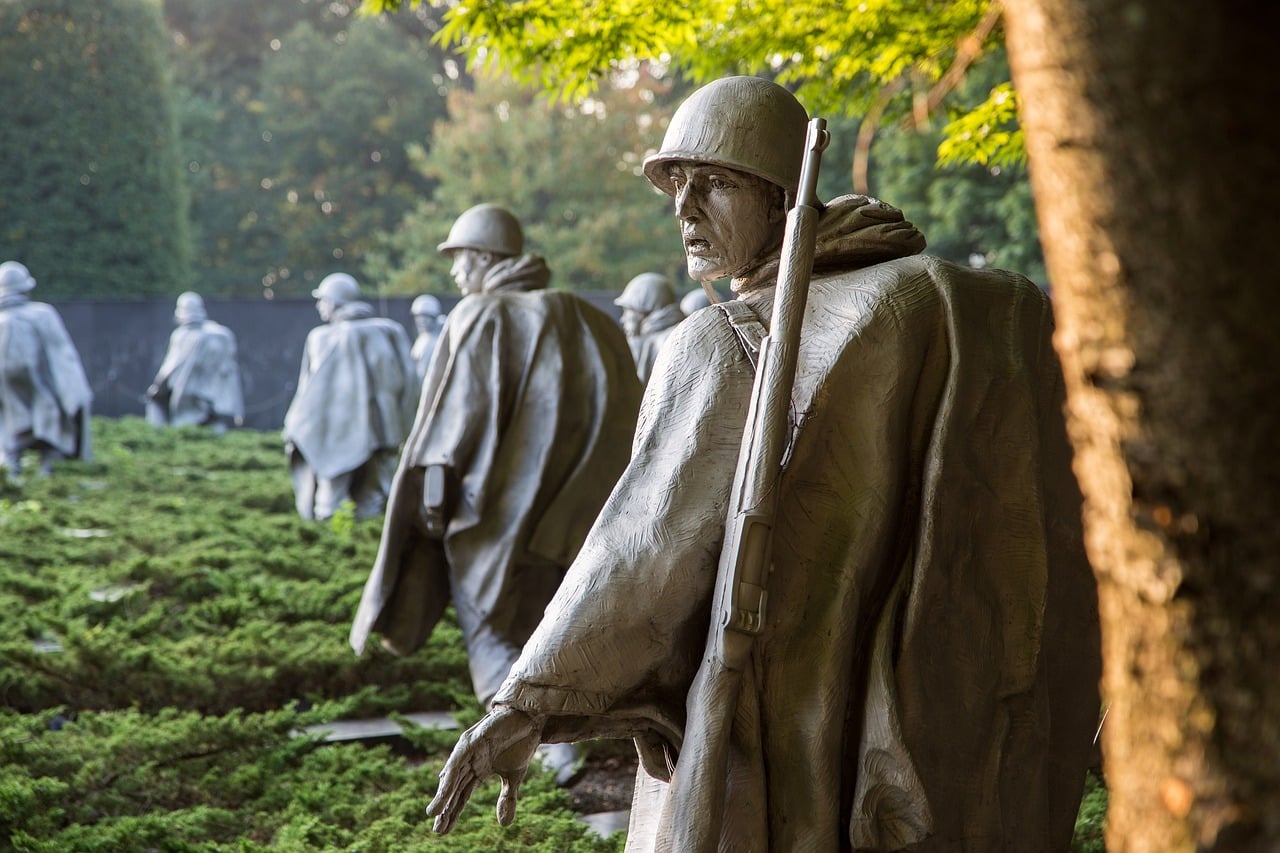The remains of an American soldier were laid to rest on Memorial Day at the Andersonville National Cemetery in Georgia after a police car with lights flashing escorted the casket to the cemetery. What made this funeral service so unique and so tragic is that Pfc. Luther Herschel Story was killed on September 1, 1950, during the Korean War. He was just eighteen years old.
Story left high school during his sophomore year and enlisted in the Army. In the summer of 1950, he deployed to Korea with Company A of the 1st Battalion, 9th Infantry Regiment. After he was wounded when his unit came under attack by three divisions of North Korean troops, Story seized a machine gun and killed or wounded about 100 men according to his Medal of Honor citation that his father received at a Pentagon ceremony in 1951. “Realizing that his wounds would hamper his comrades, he refused to retire to the next position but remained to cover the company’s withdrawal,” the award citation said. “When last seen, he was firing every weapon available and fighting off another hostile assault.” An unidentified body recovered from the area where Story was last seen fighting was buried in 1950 with other unknown service members at the National Memorial Cemetery of the Pacific in Hawaii.
According to the Defense POW/MIA Accounting Agency, of the more than 36,000 American soldiers who died in the Korean War, more than 7,500 of them remain missing or unidentified.
Story’s remains were disinterred in 2021 as part of a broader military effort to determine the identities of unknown Korean War veterans. DNA from Story’s bones was matched with DNA samples submitted by his mother and his niece.
It is good that Story’s remains were identified and his surviving family members notified. But this doesn’t change the fact that Story’s death was senseless, in vain, pointless, unnecessary—and entirely preventable.
After World War II, the United States and its allies divided Korea at the 38th parallel, with the Soviets occupying the north and the Americans occupying the south. After three years and three million, mostly civilian, deaths, the Korean War ended in 1953 in a stalemate roughly along that same miliary demarcation line, which then became the border between North and South Korea..
There was no U.S. declaration of war against North Korea. There was no congressional authorization for the president to use military force in defense of South Korea. There was no cry from Americans for the government to take sides or intervene in a civil war halfway around the world. There was no duty for the United States to contain communism. There was no threat to the United States by North Korea. No American in Alaska, Hawaii, California, Topeka, or Peoria was in any danger from anyone in North Korea. There was absolutely no reason for 1,789,000 American soldiers or one American soldier to go to Korea. President Harry Truman simply ordered U.S. troops to go to Korea, and they obeyed—just like they obeyed orders and went to Vietnam, Afghanistan, and Iraq.
The result of the president’s personal attack force going to Korea was the senseless battle deaths of 33,686 Americans and nonbattle deaths of 2,830 Americans. That is over 36,000 American sons, grandsons, fathers, brothers, uncles, and/or nephews who perished and left a void in over 36,000 families. That is over 36,000 Americans who went to Korea in one piece and came home in body bags or flag-draped coffins, died in some gulag after the war, were buried unidentified in a military cemetery, or remain missing and unaccounted for to this day. That is over 36,000 Americans who might have been engineers, physicians, athletes, musicians, writers, teachers, or entrepreneurs. We will never know.
It is said by some that something good came out of the war. It is true that North Korea is today a communist, authoritarian state—while South Korea is today Westernized, modernized, industrialized, prosperous, and democratic.
We can never know what might have happened to South Korea had the United States not intervened in the Korean civil war. Regardless of whatever good things happened in South Korea after the war, however, it was not worth 36,000 dead Americans, or even one dead American. Ask the families of the U.S. soldiers who died in the Korean War if the loss of their loved ones is worth whatever became of South Korea.
No American soldier should ever have to die in defense of some other country.
This article was originally featured at the Future of Freedom Foundation and is republished with permission.
































